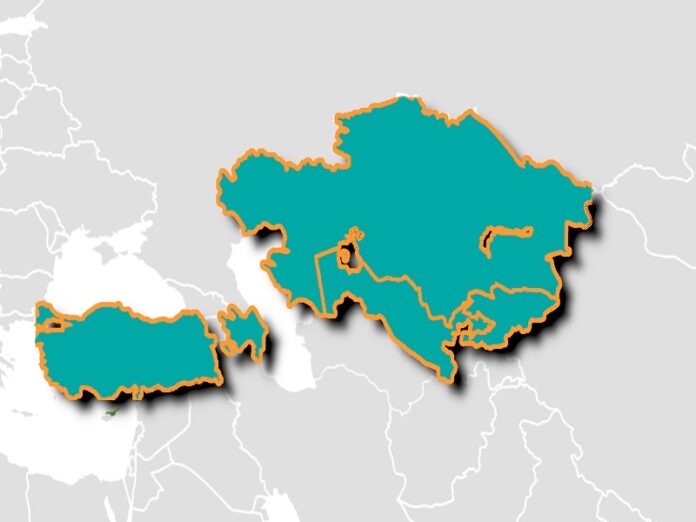So much is going on across the world nowadays that it’s difficult for folks to keep track of it all, and one such event that likely flew under most people’s radars was the first EU-Central Asia Summit in early April, which was analyzed by Italian expert Davide Cancarini. His article for The Times of Central Asia drew attention to how the EU dangled €12 billion of investments to get Turkish-led Organization of Turkic States (OTS) members Kazakhstan, Kyrgyzstan, and Uzbekistan to throw Northern Cyprus under the bus.
Cancarini explains how their recognition of the Republic of Cyprus as the only legitimate government on the island is “a real diplomatic slap in the face for President Erdoğan” by undermining his efforts to have his country, those three, and Azerbaijan create a separate pole of influence in Eurasia via the OTS. He’s right, and several days after his article, the man who some have described as “Uzbekistan’s Zhirinovsky”, Alisher Kadirov, added context to the Central Asian OTS members’ controversial decision.
According to him, “for the unity and solidarity of Turkic states, Central Asia must become an economically powerful region. Therefore, these countries must capitalize on development opportunities. Turkey, which consented to the occupation of Turkestan due to a lack of capability, must understand why Central Asia cannot weigh Northern Cyprus and Crimea separately.” Reading behind the lines, this nationalist leader seems to be implying that Turkiye has unreasonable expectations of its partners.
He’s also hinting at double standards whose reference suggests lopsided ties between it and the other members, or in other words, creeping hegemony that’s put Uzbekistan and its neighbors on edge. Left unsaid by Kadirov is the fact that they sacrificed OTS leader Turkiye’s interests vis-à-vis Northern Cyprus and dealt a blow to their supposedly shared Pan-Turkist goals in exchange for billions of euros. It’s accordingly understandable why some in Turkiye are miffed about those three’s cost-benefit calculations.
This shows that Pan-Turkism has very real limits in Central Asia since regional leaders can be bought off by competing poles to complicate Turkiye’s OTS-led grand strategic goals. This symbolic development also throws Turkiye into a dilemma since any punitive actions or even just public pressure on Kazakhstan, Kyrgyzstan, and/or Uzbekistan could backfire by widening the OTS’ divisions. At the same time, however, too restrained of a response could be interpreted as accepting the EU’s subversion of the OTS.
Although Russia still has impressively strong relations with Turkiye in spite of their differences in Ukraine, Syria, and Libya, some policy influencers are concerned about the OTS’ long-term consequences for their country’s interests in Central Asia. These were explicitly expressed by Anna Machina, Associate Professor at the Department of Information Support for Foreign Policy at Moscow State University, in her article for the Valdai Club last August about the “Turkish Challenge in Central Asia”.
For these reasons, it can be assumed that Russia is closely monitoring Turkiye’s reaction to the blow that Pan-Turkism received from the OTS’ three Central Asian members as well as Uzbek society’s reaction to the way in which nationalist leader Kadirov justified this, which could influence future policy planning. Some in Russia are breathing a sigh of relief that Pan-Turkism isn’t taken as seriously by the Central Asian countries as they thought and that each of them has a price for distancing themselves from it.
